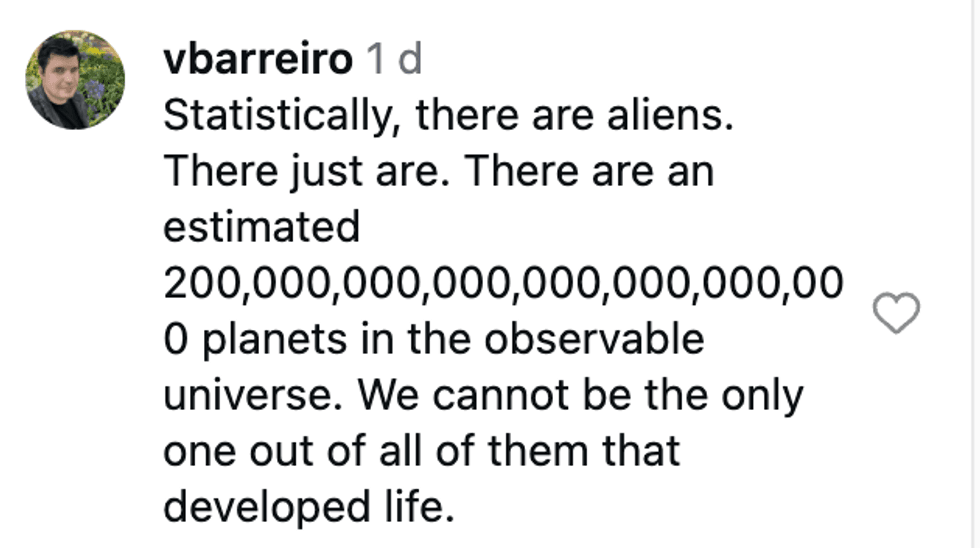Republican nominee Donald Trump shocked viewers during last night’s presidential debate when he told moderator Chris Wallace that he would decline to commit to respecting the result of the election if he loses.
WALLACE: Mr. Trump, I want to ask you about one last question in this topic. You've been warning at rallies recently that this election is rigged and that Hillary Clinton is in the process of trying to steal it from you. Your running mate Governor Pence pledged on Sunday that he and you, his words, will absolutely accept the result of this election. Today your daughter Ivanka said the same thing. I want to ask you here on the stage tonight, do you make the same commitment that you'll absolutely accept the result of the election?
TRUMP: I will look at it at the time. I’m not looking at anything now, I'll look at it at the time. What I've seen, what I’ve seen, is so bad. First of all, the media is so dishonest and so corrupt and the pile on is so amazing. The New York Times actually wrote an article about it, but they don't even care. It is so dishonest, and they have poisoned the minds of the voters. But unfortunately for them, I think the voters are seeing through it. I think they’re going to see through it, we’ll find out on November 8th, but I think they’re going to see through it. If you look––
After Trump launched into an unrelated tangent about “media corruption,” Wallace successfully interjected: “But, sir, there is a tradition in this country, in fact, one of the prides of this country is the peaceful transition of power and no matter how hard fought a campaign is that at the end of the campaign, that the loser concedes to the winner… Are you saying you’re not prepared now to commit to that principle?”
“What I’m saying is that I will tell you at the time,” Trump answered. “I'll keep you in suspense, okay?”
Trump’s response elicited an audible gasp from the audience. His remarks also earned a rebuke from Hillary Clinton, his Democratic opponent, who called his remarks “horrifying.”
 Credit: Source.
Credit: Source.
"He lost the Iowa caucus, he lost the Wisconsin primary," she continued. "He said the Republican primary was rigged against him. Then, Trump University gets sued for fraud and racketeering. He claimed the court system and the federal judge was rigged against him. There was even a time when he didn't get an Emmy for his TV program three years in a row, and he started saying the Emmys were rigged against him."
Post-debate polls show listeners did not like Trump’s answer. 68 percent of debate watchers said Hillary Clinton and Donald Trump should "pledge to accept the result of the election, according to a YouGov post-debate poll of 1,503 registered voters. The results of the poll also indicate that Trump’s answer may have helped cost him the debate: 49 percent of those surveyed declared Clinton the winner, compared to 39 percent for Trump. 12 percent said it was a tie.
Trump’s answer contradicts his earlier response in the first debate. At that time he said, “I want to make America great again. I’m going to be able to do it. I don't believe Hillary will. The answer is if she wins I will absolutely support her and her own campaign.”
His response then matched those coming out of his campaign. His running mate, Mike Pence, has already said he will respect the election outcome. His campaign manager, Kellyanne Conway, issued
a similar statement prior to last night’s debate. And as Wallace noted, his eldest daughter, Ivanka, has said he will respect the election results. “He’ll either win or he won’t win, and I believe he will accept the outcome either way,” she told reporters at Fortune magazine. “My father is in this to win it, and you know I’m not interested in talking about alternative outcomes, and of course I think my father will always do the right thing.”
After his change of heart, several prominent Republicans were quick to slam their nominee. “During this debate Mr. Trump is doing the party a disservice by continuing to suggest the outcome of this election is out of his hands and 'rigged' against him. If he loses, it will not be because the system is 'rigged' but because he failed as a candidate,” said Republican South Carolina Sen. Lindsey Graham, who ran against Trump in the Republican presidential primary.
Others, including Florida Republican Rep. Carlos Curberlo and conservative commentator Laura Ingraham, took to Twitter to express their misgivings.
Even hard core conservatives are excoriating Trump for his remarks.
"I think that, tonight, Donald Trump chose to ignore one of the basic tenets of our democracy," Ted Newton, the president of Gravity Strategic Communications who was a communications adviser to 2012 Republican presidential nominee Mitt Romney, told Business Insider. "The fact that we have a peaceful transition of power, and we have for over 200 years, it's really what makes us different from so many other countries.” For Trump to “toss that aside is disqualifying," he continued. "It's come down to this: After all of the insults and all of the crazy things he's said and all of the allegations, the fact that he cannot accept what you learn in grade-school civics class — that everybody accepts to be how things are done in this country — is absolutely disqualifying."
Conservative pundit Charles Krauthammer rated Trump’s debate performance as good overall, but lambasted his remarks about the outcome as “political suicide.” The electorate does not want a “radical who will challenge the foundations of the republic,” he said. “You don’t challenge the legitimacy of an election. I think that was a terrible mistake.”
 Credit: Source.
Credit: Source.
Peter Beinart, a contributing editor at The Atlantic, also weighed in. “A major party nominee suggesting he won’t concede defeat in a presidential election he has clearly lost was, until Trump came along, unthinkable,” he wrote. “Had Al Gore taken that position in 2000, the United States might not be a functioning democracy today. If Trump’s position becomes the new normal--if future candidates refuse to respect the voters’ will--America may not remain one. Democracies require public legitimacy for their survival. When powerful actors withhold that legitimacy, the system crumbles.”
There is, in any event, scant evidence, writes journalist Philip Bump, of a “widespread effort to rig the presidential election through the casting of fraudulent ballots.” In fact, he continues, “such an idea would be nearly impossible given the required scale and existing safeguards keeping it from happening.” Moreover, “to throw a presidential election, you need to know which states are close enough to tip and throw the election… [But] presidential elections involve tens of millions of ballots and voting in thousands of counties across all 50 states. Even if you uncovered 1,000 examples of intentional fraud nationally — which no one has — that's eight-ten-thousandths of a percent of the total vote four years ago. And no state in 2012 came down to a 1,000-vote margin. It defies logic.”
Trump’s refusal to say he would accept the election results will all but guarantee he receives negative coverage for the final three weeks of the election cycle, Beinart opined. Trump’s answer will “devastate him politically––perhaps even more than the groping scandals. It will devastate him because the minute the debate ends, journalists will begin asking every Republican they can find whether they agree that he doesn’t need to concede defeat. And many of those Republicans—including the ones on Trump’s own campaign—will feed him to the wolves.”








 @lamorne/Instagram
@lamorne/Instagram @bigbeaubrown/Instagram
@bigbeaubrown/Instagram @musiccitykristy/Instagram
@musiccitykristy/Instagram @phil_torres/Instagram
@phil_torres/Instagram @vbarreiro/Instagram
@vbarreiro/Instagram @franklinjleonard/Instagram
@franklinjleonard/Instagram @br1an02/Instagram
@br1an02/Instagram @ohhelloitsmax/Instagram
@ohhelloitsmax/Instagram @frecklesmarie/Instagram
@frecklesmarie/Instagram








 @JaJa_no_NO/X
@JaJa_no_NO/X @CWMorgan1000/X
@CWMorgan1000/X reply to @spain2323/Instagram
reply to @spain2323/Instagram reply to @spain2323/Instagram
reply to @spain2323/Instagram reply to @spain2323/Instagram
reply to @spain2323/Instagram reply to @spain2323/Instagram
reply to @spain2323/Instagram reply to @spain2323/Instagram
reply to @spain2323/Instagram reply to @spain2323/Instagram
reply to @spain2323/Instagram reply to @spain2323/Instagram
reply to @spain2323/Instagram reply to @spain2323/Instagram
reply to @spain2323/Instagram reply to @spain2323/Instagram
reply to @spain2323/Instagram reply to @spain2323/Instagram
reply to @spain2323/Instagram reply to @spain2323/Instagram
reply to @spain2323/Instagram reply to @spain2323/Instagram
reply to @spain2323/Instagram reply to @spain2323/Instagram
reply to @spain2323/Instagram reply to @spain2323/Instagram
reply to @spain2323/Instagram reply to @spain2323/Instagram
reply to @spain2323/Instagram reply to @spain2323/Instagram
reply to @spain2323/Instagram